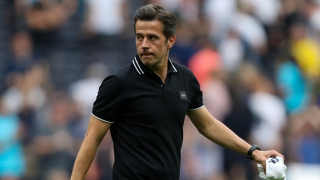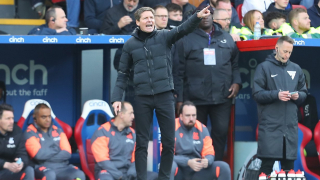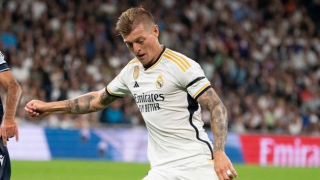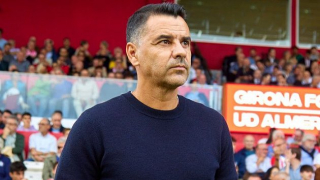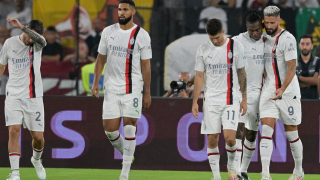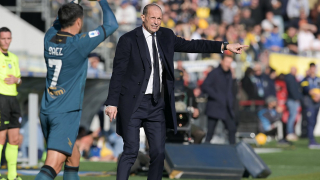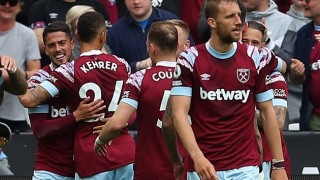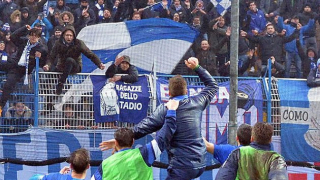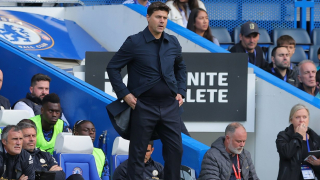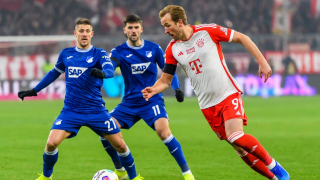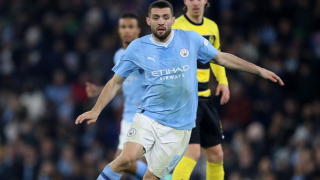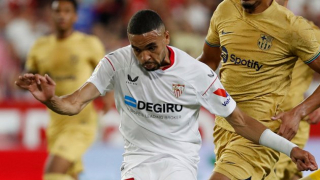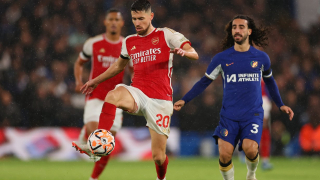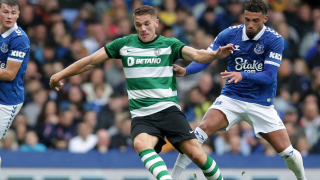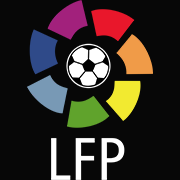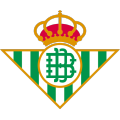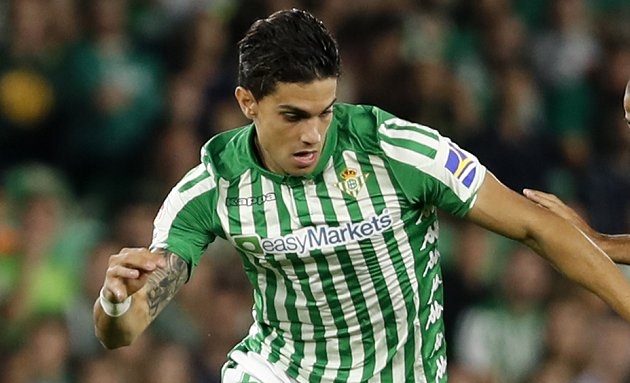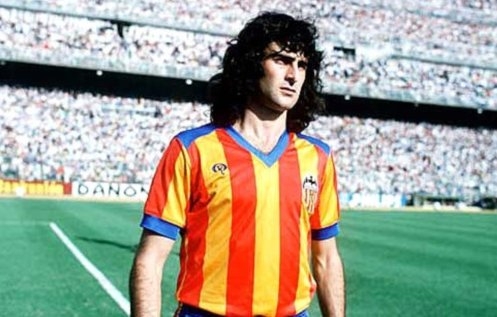We caught up with Real Betis defender Marc Bartra this week to discuss his career and ambitions for the season. Nothing is off limits in this Q&A as Marc discusses working with Pep Guardiola and Thomas Tuchel, along with life from the La Masia academy to what he finds today with Betis.
You're originally from Tarragona, but first you went to Espanyol's academy before going to La Masia when you were 11. Tell me what it was like to grow up at La Masia, the experiences you had and what it was like to play amongst so many top players.
It was really good. I started out at Barça alongside my brother at the age of 10, so I was very young. I remember that my years there were wonderful, but I had a lot of responsibility at the same time. I think there's a subconscious type of tension to want to train well and improve every day because there's so much competition there with teammates from Catalonia and all over Spain, or even the whole of Europe as you go up through the age groups. There's so much competition and that's a good thing for continued development and improvement, but you do have responsibilities and are under pressure from a young age, which isn't easy to cope with. I was always treated very well there. I didn't go to La Masia for the first few years. I started a bit later when my studies became more difficult as I got older. I enjoyed some very good years there.
Is there any particular player that really helped you develop while you were there?
We had a very good group and I mixed with some very good lads, such as Sergi Roberto and Marc Muniesa. The problem, of course, is that there are so many of them and if I forget any names, they'll kill me later because we're still in touch! I have a very good relationship with Oriol Romeu and Carles Planas, and while it's true that over time we've gone to different cities and places, many of us did manage to make our first-team debut for the club and those relationships still exist now. It was also a good period in terms of studies because I was able to start a degree, as most of us did. On a sporting level, being in close contact with my studies at La Masia made that easier as I was able to study and be a footballer. I have very fond memories of my experiences there with all my teammates.
Do you remember looking up to the first team and thinking, 'wow there are so many incredibly unique and special players.' Are there any players that stood out for you?
Yes, once I was in the first team, they were still my idols rather than teammates. I particularly remember being in the dressing room on my first day of training with the first team. I was 17 and it was as if they were all in a bubble. I said to myself, "I'm here to train with them having been watching them on TV for many years." It was also a wonderful period for a Barça side that was winning the lot, including six-trophy hauls and trebles, etc. It was a dream come true and the feeling of fulfilling my dream brought the best out of me, both with the first and second teams. I improved over those years and knew that if I did well with the first team, it would be with the help of homegrown players because I think they made up 80% of the squad. Players like Carles Puyol, Victor Valdes, Xavi, Iniesta, Messi, Cesc, Pique, Sergio Busquets, Pedro. I was very lucky to be made to feel so welcomed and it was down to the fact that they had gone through the same process as me that I was able to enjoy such a gratifying experience.
What was your relationship with Pep like? You made your permanent move to the first team under Tito Vilanova but you came through when Guardiola was still in charge.
It was very good from the start. He was the first-team coach and he was there to win trophies. He had played for the club as well and gone through the same experience as me. He asked me plenty of questions and also gave me lots of advice in order for me to keep doing what I was doing and also to improve. I remember that the first question that he asked me was about my studies and not abandoning my degree. He was very interested in your personal life and gave you confidence to train well and do your best. I'll always be grateful to him because he handed me my debut and I took my first steps into the first team with him. He's a coach who masters every phase of the game. He knows what you have to do in every position and he helped me so much. I was just a wide-eyed youngster who wanted to learn and observe everything he did.
Let's talk a little bit about your time in Germany. Tell us bit about your experience playing in the Bundesliga and how it compares to the different playing styles that we find here in Spain.
Yes, in fact the of football is quite different. The league is completely… It's true that it was quite similar in many ways because of Thomas Tuchel's of play and he was the person who convinced me to go there. The day-to-day, both personally and professionally, is very different there and that's why I think I rate my first year there the highest. I started practically every game. I got so many minutes under my belt that it was almost like a master's in football and also in personal terms because the culture is completely different, the language is different and there are different ways of doing things. I was able to settle in straight away. We went on to win the DFB Cup in my first season after Borussia Dortmund had endured a few trophyless years. That's why I have such fond memories. The Bundesliga is a league that certainly toughens you up.
Can you speak German at all? Did you learn any while you were there?
A bit, yes. Above all, I started understanding it. I was there for almost two years and was beginning to understand a lot. I was mainly told the football words. Initially, I said I only wanted to learn things about football and a month or so down the line, you start learning more from the day-to-day. What mattered to me was being understood on the pitch and communicating quickly with my teammates, with the day-to-day following later. It's very tough!
Quite a lot of Spanish players go to Germany to improve, to develop, to play. Carvajal comes to mind, so does Hakimi. Why do you think they chose the Bundesliga over other European leagues?
Yes, I think it's also down to the team and of play. As players, we often get to choose. At the time, I knew I was leaving the place where I'd been my whole life, but I was going somewhere else where there was a strong feeling as part of a big family. I have very fond memories from my time there. The fan base is renowned the world over and I chose to go there because when you watch the games, it gives you goosebumps and I wanted to be part of that. I really fancied a move there and even more so when I spoke to the coach for the first time and Thomas Tuchel told me how much faith he had in me. It's a very interesting league because it's so competitive. Maybe it's different to Spain. It's very fast-paced in Germany and the league is very competitive. You can't relax against any side for even a minute. It's 90 minutes filled with intensity, good play and battles. It's a brand of football that toughens you up.
On April 11th, 2017, the team bus was attacked and hit by 3 explosions. Unfortunately, you suffered some of the consequences but thankfully you're in one piece, safe and sound. You once described the experience as 'the longest and hardest 15 minutes of your life.' Do you still think about it, and how does it still impact your life now?
Yes, it's actually something that I've taken as a positive, given all the bad things that can happen in such situations. It was the toughest moment of my life. That's why I've always wanted to separate it and remember the good times I spent there. I always say that you come out of bad moments with gritted teeth and you also learn from them. I think that's also what makes me the person I am today. I believe I'm the same person, but even stronger. I never throw in the towel and I think you have to make the most of every situation to develop, above all, as a person and not just as a footballer.
A few months later you came back to Spain with Real Betis. Was that experience one of the reasons you decided to come back to Spain, or did you just feel it was time to come back home and back to LaLiga?
It wasn't an easy decision by any stretch. We made a very good start in my second season, won lots of games and were top of the league under Peter Bosz. I was a key part of the team, but when we suffered lots of injuries one month, I started playing in a different position as a full-back. We began to drop points and weren't winning matches. There was a change of coach and once that happened, I was less involved. I was getting call-ups to the national team and there was a World Cup that summer. If I learnt anything there, it was the importance of not wasting time or making anyone else waste theirs. The opportunity to move to Betis and return to LaLiga came up and the fact that it was Betis certainly made me want to come back more because I knew what a big club it is and about the huge and supportive fan base. I knew it was a good opportunity to pick up where I left off in Germany and before that in LaLiga. I was able to get back into the swing of things and in truth, those first few months were among the best and most important for me professionally. First of all, because of the confidence that Quique Setien showed in me, along with all the fans.
We won plenty of games in that time and I was able to get playing time under my belt, allowing me to remain in the national team squad. On a personal level, I had my second daughter, so those five months were very successful. It wasn't enough to go to the World Cup in the end, but I know I went very close and it came down to fine margins. I've been very happy here since day one in terms of the club, the city, my teammates and LaLiga, which I think is the best league of all where the best players in the world play. The level has been going up so much in recent years and the competitiveness is incredible because of the players and teams competing in it. I'm enjoying it.
What's it like working with new Betis coach Rubi?
Rubi is a coach who likes to keep possession and have a complete team in every sense, whether it means having more of the ball or adopting a more direct approach. I think he's a coach who has mastered every area of the game. Despite that, we've had matches in which things haven't gone our way, but I do think we're becoming a complete team that knows how to play with and without the ball, which is very important nowadays, considering that every LaLiga side is so hard to play against. I think we're also a compact team without the ball and we've been proving just that.
We can't finish without talking about Joaquin, Mr. Real Betis himself. He's an absolute icon, both at Betis and in LaLiga, a showman, a comedian, everything… what's it like to have him as your teammate?
He's the leader in terms of humour and happiness, as well as on the football side of things. You could say he's the thermometer in the dressing room. If we need an injection of positivity and for him to be himself, he always does just that. He can make us all feel better just with his way of being, but when he needs to, he's the first one to take a step forward and be serious. I think that helps in every sense. He's a player with a wealth of experience and now he's around 38, which is incredible. I think that experience brings so much to the dressing room.
Would you say he's the most unique personality you've ever played with?
Well, I've played with so many big personalities (laughter). I remember Dani Alves, for example, but Joaquin is such a fun guy. There's not a bad bone in his body and he's one of those players who you remember because he brings so much to the team's game, which makes him a key figure in the dressing room.


